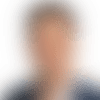Ben McAdoo said the New York Giants had a "brutally honest" meeting in the days after their latest embarrassing defeat dropped them to 1-8. There are sure to be more meetings -- all the way to the top of the organization -- as McAdoo and company try to pull out of the tailspin.
So while Giants brass ponders the future, with or without sweeping changes to leadership in the football operation, I asked a couple questions this week of NFL executives, scouts and coaches:
How do you fix the Giants? And can you do it without tearing the whole thing down?
The sense I get is this doesn't need to be a total rebuild, but there are significant personnel issues that went largely unaddressed in the wake of last season's 11-5 finish (including eight wins by seven points or fewer). And while opposing coaches insist the Giants' effort doesn't show up as a problem on tape, there's certainly reason to question whether the right leadership is in place. Even before injuries struck, most notable to star receiver Odell Beckham Jr., the Giants were 0-5. They have to re-evaluate everything, because what they're doing isn't working.
Based on those conversations I had with NFL executives, scouts and coaches, mostly conducted on condition of anonymity for competitive reasons, here's a short list of suggestions for how to get the Giants back on track:
Find Eli Manning's successor immediately
This isn't really a reflection on Manning, who can only shoulder so much blame for everything falling apart around him. He's a descending player, but still starting-caliber quarterback at age 36. If you want to bounce back in 2018, there's no rush to move on. (For argument's sake, the upside to cutting Manning before a $5 million roster bonus is due in March is a savings of $16 million in cash and $3.6 million in space on next year's salary cap.) The Giants did draft Davis Webb out of Cal in the third round last year. He's an excellent athlete and relentless worker, with traits some scouts compared favorably to the No. 1 overall pick in 2016, Jared Goff. But Webb's accuracy was sporadic in college and he needed to clean up his decision making, mechanics, footwork, etc. Hard to say how far Webb has come with the Giants since he hasn't played. Are they convinced he can be Manning's successor? If not, they need to keep looking, now.
Invest in the offensive line
The Giants badly need help at linebacker, they have holes in the secondary and it feels like forever since they had a difference-maker at running back. But even considering the O-line's competent play in recent weeks, that group comes up first in every discussion about the weaknesses of the current roster, built since 2007 by GM Jerry Reese. Though Ereck Flowers isn't the reason they're losing this season -- he has minimized how often his deficiencies show up on game day, cutting down on costly plays against him -- I've yet to speak to an opposing scout who believes he's a long-term answer at left tackle. One respected evaluator suggested trying Flowers at guard or right tackle; another exec said he'd just move on. Before you think about putting that young QB on the field, you need to get this group right, starting on the blind side.
Dissect the culture
It starts with McAdoo, whose job seemed secure for 2018 until a few weeks ago as the losses mounted, multiple starters served suspensions and a couple unnamed players mouthed off about him to the media. Whatever his weaknesses, McAdoo did guide the Giants to that 11-5 mark a year ago. My understanding is the attention to detail and energy level at practice hasn't raised red flags. And leadership doesn't end with the head coach. Who are the leaders in the locker room? Manning qualifies, though he's not your typical alpha-male QB. A bunch of the veterans on defense play a role. Safety Landon Collins tries to lead and receiver Sterling Shepard is another high-character guy, but they're young. Compare this situation to last year's Los Angeles Rams, who went through a similarly tumultuous stretch before Jeff Fisher was fired and made a conscious effort this past offseason to get rid of the unreliables. As new coach Sean McVay told me recently, speaking of his own team: "When you have good people that understand, respect the process, they love the game, they're better served to help work through some adversity that's inevitably going to be faced." Not everybody on a 53-man roster is going to be an A-plus character guy, but you need enough of those guys to show the others the way.
Think hard about whether to extend OBJ
He won't be the highest-paid player in NFL history, but Beckham is going to cash in -- almost assuredly in a bigger way than Steelers star Antonio Brown did on a four-year, $68 million deal in February. Giants president and CEO John Mara left no ambiguity last summer when he said of Beckham: "He deserves to get paid. We're going to pay him." Beckham is one of the NFL's most dynamic playmakers, just turned 25 and should be fully recovered from his fractured ankle as he enters his option year in 2018. (He's on the books for $8.459 million). But going back to the culture question, is Beckham -- a lightning rod thanks to his history of outbursts on the field and the sideline who's still learning how to manage his emotions and influence over the locker room -- the guy you want as the centerpiece of the roster? Or could now be the time to maximize what you can get on the trade market and redeploy cap resources elsewhere? It's a lot easier to argue the latter if it's not your job on the line. Imagine the tabloid covers if the Giants keep an unpopular coach and dump a wildly popular receiver. As one longtime NFL executive said: "That's one of those splash moves: Do you keep the fan base intact? That's going to be a combination of ownership, PR, coach -- one of those meetings." Lose Beckham, and you've lost your offense, leaving Shepard (a borderline No. 2/3 receiver) and receiving tight end Evan Engram as playmakers ... but also creating more chances to replace him.
Look to deal from positions of strength
Scouts and coaches who have studied the Giants also can rattle off their strengths, led by Damon "Snacks" Harrison and their high-paid defensive front. Their edge rushers are strong. Collins was a Defensive Player of the Year candidate in 2016. Cornerback Janoris Jenkins -- suspended a week when he didn't show up for work -- can give you headaches but loves football and is good at it. Could they look to trade one of the big-money defenders to shore up a weakness elsewhere? The Giants don't have any cap or cash issues going forward, but it'd be one more way to amass resources that could be used to address problems elsewhere.
The Five W's for Week 11
WHO really believes starting rookie QB Nathan Peterman is best for the 2017 Bills? When I visited Buffalo in September, one player told me the thinking in the locker room was Tyrod Taylor would be benched after the Week 6 bye. Main reason: Peterman was simply a better fit for coordinator Rick Dennison's offense, which places a premium on getting the ball out quickly and in rhythm. Taylor likes to hold the ball and is at his best extending plays -- his average time to throw this season is 2.98 seconds, ranking him 31st of 33 qualifying passers, according to NFL Research. (The Bills actually are 4-1 when Taylor holds the ball an average of three seconds or more, and 1-3 when he doesn't.) Taylor held off Peterman longer than expected, but it seems clearer than ever he's not part of the Bills' future plans. (A $6 million roster bonus due in March will serve as a trigger on that decision.) The QB change won't fix the Bills' run defense, which has hemorrhaged 246 yards per game over the past two weeks, but being more efficient offensively would have a positive impact on the overall picture. The book from scouts on Peterman coming out of a pro-style offense at Pitt: game manager type, accurate, smart, good decision-maker. One knock was Peterman doesn't have a big arm, which concerns some scouts in a place with weather like Buffalo's.
WHAT can college football and/or the NFL do to entice talent to offensive line positions? (submitted by @thefutureinHD) One NFL O-line coach's suggestion for improving the talent pool: Take as many big-body, step-too-slow tight ends as possible and start training them at tackle in college. The enticement for players is obvious, since top or even serviceable tackles make a lot more money as pros than any blocking tight end. And they'd be better served making that switch earlier, potentially becoming draft-able prospects and not having to learn on the fly in the NFL, where practice time in pads is so limited. Selling college coaches on it is a different story, of course. As one college O-line coach said: "The 6-5, 230 kid will play spread TE at 80 percent of the colleges." Spread offenses also dominate high school football, so a lot of those guys don't even start developing inline blocking skills. And the ball comes out so quickly in college, even full-time tackles barely learn to get into a pass set. Plenty of NFL coaches stump for more practice time, but this issue goes deeper. No easy fix.
WHEN do we start thinking the Texans are tanking with starting Tom Savage?(submitted by @Bullsonpar4de) Considering the Browns own Houston's first two picks in the 2018 draft, the idea of tanking is even less plausible than usual. Remember, the Texans thought enough of Savage to start him over Deshaun Watson at the start of this season (albeit a decision that lasted exactly two quarters). They certainly weren't waving the white flag then. No question the Texans are a different team without Watson, though. According to NFL Research, in Watson's six starts, the Texans averaged 34.7 points per game (leading the NFL from Weeks 2 through 8) and went 3-3. In Savage's three starts, they're averaging 9.3 points and are 0-3. Savage's lack of mobility behind an O-line that traded away its left tackle at the deadline isn't helping.
WHERE is the NFL investigation into Martellus Bennett and his agent lying about retirement to get back to the Patriots through the waivers? (submitted by @eschro80) I asked a few people about Bennett's comments and the circumstances surrounding the Packers cutting him. It doesn't appear there are any rules that would stop Bennett or his representatives from saying whatever they want about surgery, retirement, etc. Any team could call Bennett's bluff and claim him, with the only liability the remaining $423,529 on his contract. (The Packers paid Bennett a $6.3 million signing bonus and the cap hits stay with them; NFL Network Insider Ian Rapoport has reported the Packers intend to try to recoup some of the bonus money.) The only way there'd be an issue if the Patriots or another team violated the anti-tampering rules by contacting Bennett or his agent before he cleared waivers and/or conspired with him to mislead other teams. NFL spokesman Joe Lockhart said this week it's not something the league is looking into.
WHY did the NFL Players Association agree to the current CBA that gave Roger Goodell so much power over disciplinary decisions, such as the one that led to Ezekiel Elliott serving a six-game suspension? There seems to be a misconception this was something new in 2011. I recently had someone track down a copy of the 1977 CBA, which includes "Article VIII: COMMISSIONER DISCIPLINE," granting the commissioner the power to not only impose fines or suspensions upon players from "conduct detrimental to the integrity of, or public confidence in, the game of professional football," but hear the appeal and "render a written decision, which decision will constitute full, final, and complete disposition of the dispute, and will be binding ..." I've sat in federal court through multiple cases in which the NFLPA has argued there was no problem with this clause under previous commissioners and Goodell is overstepping his authority; NFL attorneys in turn argue the union is trying to renegotiate the CBA through the courts. Right or wrong, federal court decisions in the Elliott case, like the Tom Brady "Deflategate" case before it, reinforced the commissioner's broad authority over discipline -- authority the person in that position has had for at least 40 years.
Ever wish you had the access of a highly connected NFL reporter? Well, now you do! Sort of. Submit your questions on Twitter using the hashtag #AskedAndAnswered. @TomPelissero will select the best submissions and work to find an answer.




